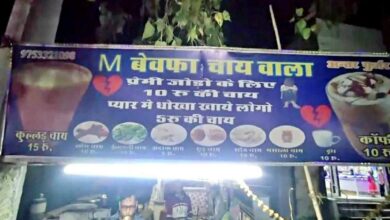What happened to the guarantee of MSP?

It has been five and a half months since the farmers ended their agitation. With the announcement of abolishing all the three agricultural laws made by the central government, Prime Minister Narendra Modi had promised that the government would form a committee, which would consider the issue of giving legal guarantee to the Minimum Support Price (MSP). A committee was to be formed consisting of the United Farmers Front and government representatives, who led the farmers’ movement that lasted for a year. On 19 November 2021, the Prime Minister had announced the formation of a committee to consider the MSP and other matters. Then it was also included in the assurance letter given by the government on 9 December 2021 to end the farmers’ agitation. But even after a lapse of five and a half months, neither the committee has been formed nor the legal guarantee of MSP has been ensured. Meanwhile, a Rabi crop was also sold.
It seems that the government’s aim was to end the farmers’ agitation as assembly elections in five states, including Uttar Pradesh, were due to be announced in January 2022. The government did not want the farmers’ movement to continue during the elections. The government also knew that once the farmers got up after ending the agitation, it would be difficult to agitate again on the same issue. Such movements are like a wooden pot. If we look at recent examples, from Anna Hazare to Arvind Kejriwal and Ramdev, no one has been able to create a movement again. So, as soon as the farmers sitting on dharna for a year ended the siege of Delhi and announced to end the movement, the government’s purpose was fulfilled. It is true that the farmers were also tired of the agitation for a year but they were completely a victim of a political ruse. That’s why even five and a half months after the end of the agitation, the farmers are wandering about when and how the law to guarantee MSP will be made.
Meanwhile, an attempt has started to fabricate the discourse that what is the need for a legal guarantee of MSP, when farmers are selling food grains at a higher price than the MSP. This campaign should not be taken lightly by the farmers because it is not a spontaneous campaign, but it is being propagated in a well-planned manner that the farmers are getting the price of wheat more than the MSP in the mandis. Many such lengthy reports have appeared in the newspapers from Punjab and Haryana, in which it was told that farmers with the help of their arhtiyas sold wheat at a price higher than the MSP. First, farmers did not get more than the MSP in most places. Wherever it was found, it got five to 15 rupees more than the MSP of Rs 2,015 per quintal. Apart from this, the fact is that due to the ongoing war between Russia and Ukraine, wheat exports have been affected, due to which private traders bought wheat in a big way and due to this, the price of wheat got slightly higher. Such a situation is not going to happen every year or for every crop.
But on this basis it is being publicized that what is the need of MSP, when private traders are buying food grains by paying more than that. Actually it is propaganda to trouble farmers. Farmers should not fall under the guise that they will get more price than the MSP in the open market. This is actually part of a plan to weaken and destroy the system of mandis. As long as there are mandis and there is a system of MSP, only then the security of the farmers will be ensured in the face of market forces. As soon as these are over, the farmers will be at the mercy of the private traders. Then private traders will fix the price of food grains according to their own and will buy arbitrarily. They will also decide the quality of grains themselves before purchase.
Under the farmers’ agitation and political pressure, the central government repealed the law abolishing the Essential Commodities Act. Despite this, its danger is present in front of the farmers. What would happen if private traders bought some grain in large quantities and stored it and removed the same crop in the grain market kept in their warehouse before the next season? Then the price of food grains will fall badly and the farmer will be forced to sell food grains at a cheaper price. At that time only arrangement of mandis and minimum support price would save them. The need for MSP is also due to the fact that most of the states of the country do not have a system of market and government procurement. For example, the system of mandis has been abolished in Bihar and farmers are dependent only on the purchase of private traders. Farmers are not able to get good price in such places. If there is a law to guarantee MSP and there is a system that no trader will be able to buy food grains at a price lower than MSP anywhere in the market or outside the market, then only the farmers can be saved.
Once a committee is formed to discuss the law of guarantee of MSP and the discussion on it starts, then other issues related to it will also arise. Two more issues related to the legal guarantee of MSP are special. One is the way to fix the MSP and secondly to increase the number of produce covered under the MSP Act. MS Swaminathan formula is discussed for years in the matter of fixing MSP. He has given a formula, in which he has included the cost of farming i.e. fertilizers, seeds, irrigation etc., as well as the wages of the farmer and his family and the rent of the land. The A2 plus FL and C2 formula is the broadest base on which the MSP should be fixed. Apart from this, at present the government fixes the MSP of only 23 crops. Farmers are demanding to increase it. It is also to be noted that the Prime Minister had promised to double the income of the farmers. His deadline has passed. During this period, instead of the income of the farmers, the cost of agriculture has increased. A meaningful initiative can be taken on all these issues only when the government, as per its promise, constitutes a committee to consider the MSP, and starts a positive discussion by including representatives of the United Kisan Morcha. It is also necessary that the government should not discuss agricultural laws keeping in mind the interests of traders or consumers only.






